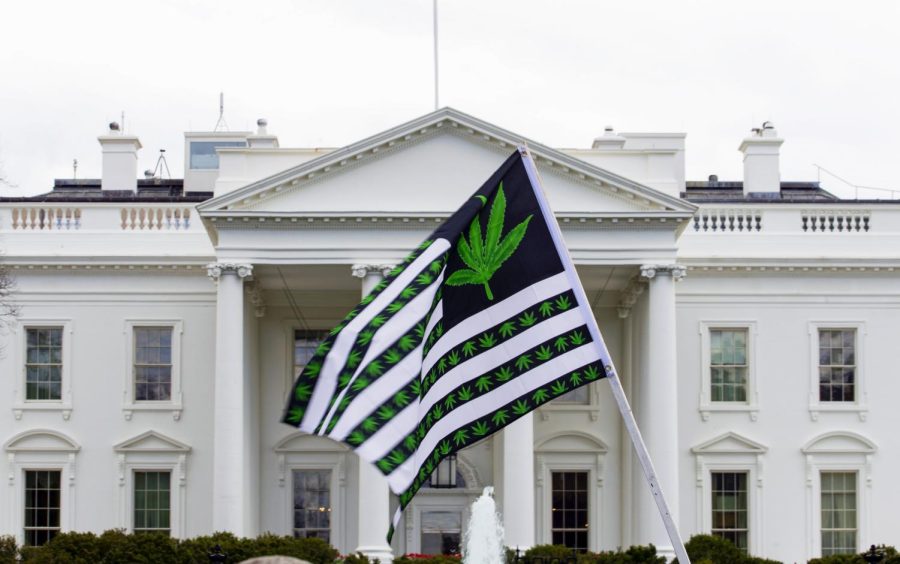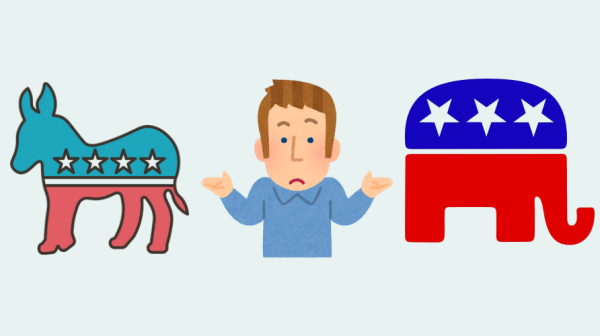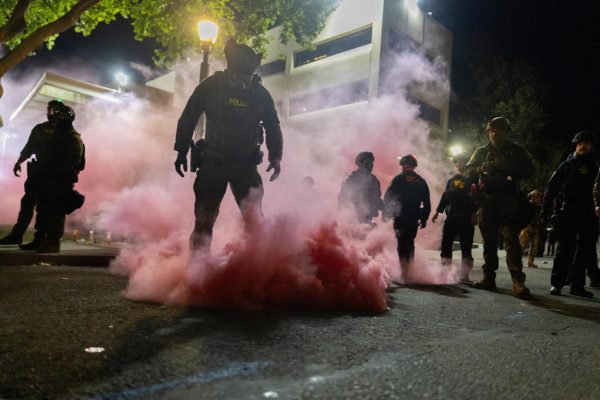Biden’s pardoning marijuana convicts is a step in the right direction
AP Photo/Jose Luis Magana, File
A demonstrator waves a flag with marijuana leaves depicted on it during a protest calling for the legalization of marijuana, outside of the White House on April 2, 2016, in Washington. President Joe Biden is pardoning thousands of Americans convicted of “simple possession” of marijuana under federal law, as his administration takes a dramatic step toward decriminalizing the drug and addressing charging practices that disproportionately impact people of color.
Biden’s plan to pardon offenders of simple marijuana possession is a step in the right direction; however, more work needs to be done in fighting against the war on drugs.
Biden announced his plan to pardon U.S. citizens charged or convicted of simple marijuana possession under federal or D.C. law on Oct. 6. It is estimated that this pardon will affect about 6,500 people, 908 of which were reported since 2017.
The pardon notably comes as midterm elections are right around the corner; however it should not come as too much of a surprise. Marijuana incarcerations due to possession was one of the subjects of Biden’s campaign in 2020.
Another one of Biden’s campaign promises was rescheduling cannabis as a schedule II drug. In the meantime, marijuana remains classified as a schedule I drug, which the DEA defines as “drugs with no currently accepted medical use and a high potential for abuse.” This puts marijuana in the same category as heroin, LSD and peyote.
Marijuana decriminalization has steadily become more popular in recent years. According to a 2021 Pew Research poll, 60% of Americans believed that marijuana should be legal for both medical and recreational use. Furthermore, the poll found that only 15% of those that identify as conservative believed that marijuana should not be legal at all.
In addition to the pardon, Biden urged governors across the country to follow suit. The majority of people being punished for drug possession are incarcerated at the state level. While Illinois has been one of the more progressive states on this front, we must not forget that other states in the country have strict laws regarding marijuana. The tides are turning, as over half of U.S. states have at least partially decriminalized certain possession offenses, according to NORML.
Though the move may seem obvious on a surface level, Biden’s pardon has raised concerns regarding presidential power. Despite being legal under Article II, Section 2 of the U.S. Constitution, this pardon has worried some about the precedent it sets for future presidents that do not like certain laws or punishments. Large scale pardons are not without precedent, as President Jimmy Carter pardoned Vietnam draft dodgers in 1977.
While pardoning offenders of simple marijuana possession is a step in the right direction, much more work needs to be done with rights regarding marijuana. The pardon does not decriminalize the drug, nor does it change its scheduling.
Additionally, Biden’s pardon excludes other offenders of marijuana. Other charges involving the drug such as conspiracy, possession with intent to distribute and trafficking are not affected by Biden’s pardon. In 2021 alone, over 600 offenders of trafficking marijuana under federal law were reported.
Biden pardoning offenders of simple marijuana possession is the first step of many in reaching the decriminalization of marijuana.








